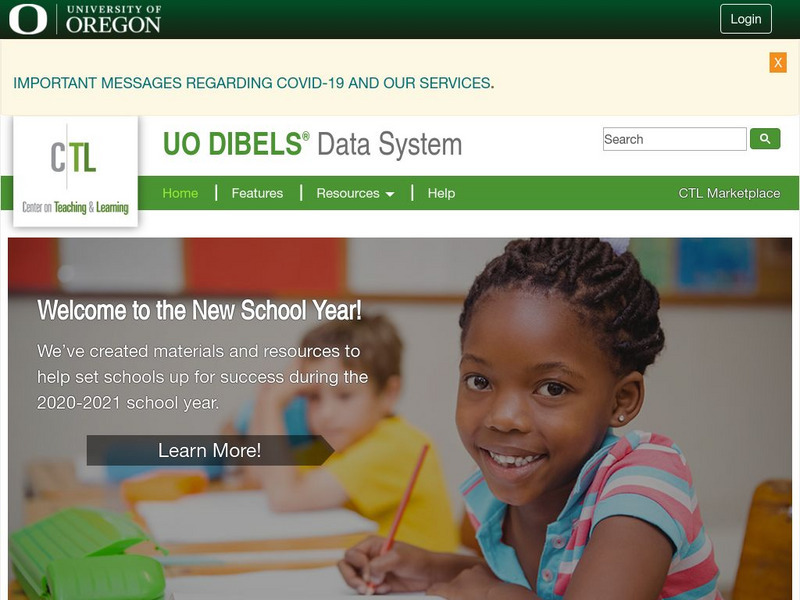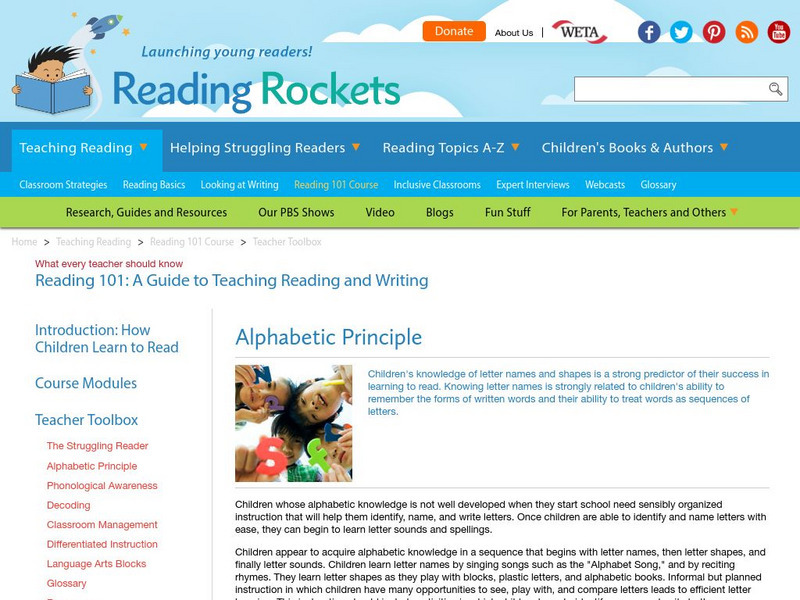Curated OER
Beginning and Ending Sounds - Lesson 1 of 2
Stamp, slap, and clap! Emergent readers demonstrate their awareness of the initial, medial vowel, and final sounds in spoken, short vowel, single-syllable words with a stamp/slap/clap activity. After identifying the letters and sounds of...
Curated OER
Our Green City
Students practice beginning reading while exploring an environmental theme. In this our green city lesson, students create their own published books, examine phonemic awareness, alphabetic principle, comprehension, and vocabulary.
Curated OER
Alphabet Books
Students explore alphabetic principle and phonemic awareness by making alphabet books. They identify initial consonant sounds and choose pictures of objects that begin with given letters of the alphabet. Students identify phonemes...
Curated OER
Crying Baby.....Aaaaaa!
Students identify the short a sound. They recognize it in spoken words and practice finding short a words. A tongue twister is read to them and short a words are underlined. This relates to a crying baby because a lot of times when a...
University of Oregon
Official Dibels Homepage
This assessment focuses on phonemic awareness and alphabet knowledge. Free downloads available on the website.
Reading Rockets
Reading Rockets: The Alphabetic Principle
What are predictor's for a child's success in reading? Use this site to learn more how the knowledge of the alphabet and shapes is a factor for reading success.
University of Oregon
Big Ideas in Beginning Reading
The goal for teachers from the academic content standards is every child to be reading by 3rd grade. This site will help teachers to teach the "big ideas" in reading: phonemic awareness, alphabetic principle, fluency with text,...
Scholastic
Scholastic: Clifford: How Phonics Contributes to Reading Success
How does phonics contribute to reading success? Use this informative resource to learn more about phonics and how the alphabetic principle fits into this model.
Other
Effective Decoding Instruction for Diverse Learners: Alphabetic Principle
What is the definition of alphabetic principle? This site focuses on the stages of effective decoding for all types of students and learning strategies.
SEDL
Cognitive Framework: Instructional Resources Database: Instructional Activities
This professional resource includes a database to find the answer relative to the best instructional practices related to alphabetic literacy. This site offers activities in English and Spanish to help teach literacy topics.
Auburn University
Auburn University: Decoding Glossary
What do you know about teaching decoding skills to your students? Do you ever get stumped by some of the words that go along with decoding? If you answered yes to any of these questions then come and check out this decoding glossary.
Reading Rockets
Reading Rockets: Reading Basics: Phonics and Decoding
The goal of phonics instruction is to help children learn the alphabetic principle - the idea that letters represent the sounds of spoken language - and that there is an organized, logical, and predictable relationship between written...
Reading Rockets
Reading Rockets: The Alphabetic Principle
Children's knowledge of letter names and shapes is a strong predictor of their success in learning to read. Knowing letter names is strongly related to children's ability to remember the forms of written words and their ability to treat...
BBC
Bbc Skillswise: Reading: Recognizing Letters and Words
Learn the importance of alphabetic sequence and using common letter patterns to support fluency. For adult learners.
Education.com
Education.com: rf.k.1.b Worksheets
[Free Registration/Login Required] Choose from a variety of worksheets to practice the Common Core standard of recognizing that spoken words are represented in written language by specific sequences of letters.















